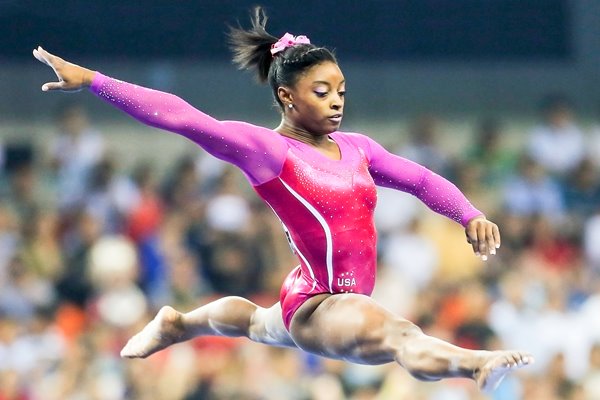Simone Biles has built her career on pushing boundaries and redefining what’s possible in gymnastics. Yet, there’s one question she still can’t answer with certainty: will she compete at the 2028 Olympics in Los Angeles?
While fans continue to speculate, the decision to retire is not as simple as stepping off the balance beam. For Biles, it’s about weighing her future — both in and out of the gym — figuring out if another Olympic run fits into the picture of her life and career.
Don’t miss
-
A near-record number of Americans are grappling with $1,000 car payments and many drivers can’t keep up. Here are 3 ways to stay ahead
-
Protect your retirement savings with these 5 essential money moves — most of which you can complete in just minutes
-
Trump says trade tariffs could hit Canada, Mexico and China as early as Feb. 1 — but US economists warn it could effectively ‘tax’ Americans instead. Here’s why and how to protect your money ASAP
“I’ve accomplished so much, there’s almost nothing left to do, rather than to just be snobby and to try again, and for what? I’m at a point in my career where I’m humble enough to know when to be done,” she told Sport Illustrated.
With 11 Olympic medals — seven of them gold — the gymnast’s achievements are undeniable. But even with such success, knowing when to walk away is never easy. Whether you’re a professional athlete or considering retiring from your 9-to-5 job, decisions can feel anything but straightforward. However, taking the time to weigh a few factors can make the transition to the next chapter a bit smoother.
What’s worth it?
In her interview with Sports Illustrated, Biles opens up about the sacrifices she’s made at different stages of her life to achieve the level of success in her career. But as she continues to evolve, the relentless time and dedication required to stay on top come with increasingly significant trade-offs.
“What sacrifices would be made if I go back now?” Biles reflected. “ When you’re younger, it’s like, prom, college. Now it’s like, starting a family, being away from my husband. What’s really worth it?”
Whether you’re contemplating retirement to focus on family, explore new passions or simply enjoy the fruits of your labor, financial preparedness is key. According to a recent study by the Employee Benefit Research Institute (EBRI), 38% of retirees underestimated their medical expenses in retirement, with health care costs catching them off guard.
In recent years, Americans aged 65 to 84 have seen their health care spending grow at a faster rate than younger individuals, according to the Centers for Medicare and Medicaid Services](https://www.cms.gov/Research-Statistics-Data-and-Systems/Statistics-Trends-and-Reports/NationalHealthExpendData/Downloads/AgeandGenderHighlights.pdf). Medicare benefits don’t kick in until age 65, meaning if you plan to retire earlier, you’ll need to account for private health insurance or build a financial cushion to handle unexpected medical expenses.

